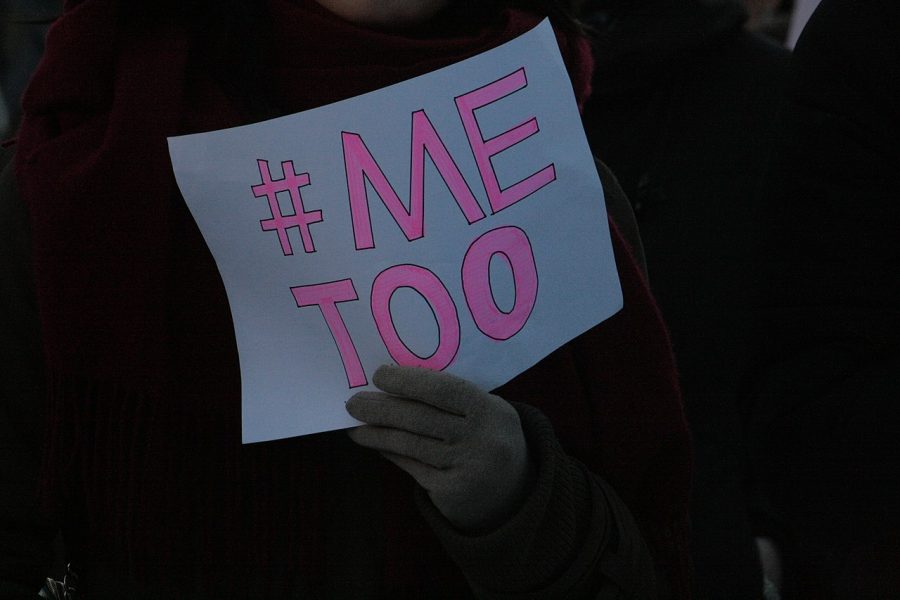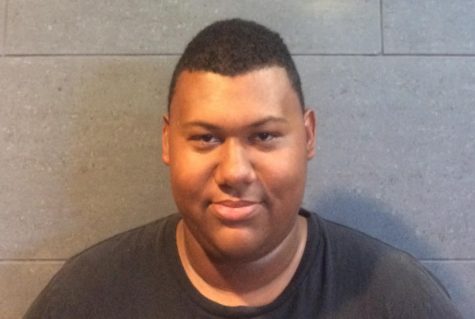Media gives in-depth looks at factors surrounding #MeToo Movement
April 19, 2018
For the last several months, the coverage of the #MeToo movement has died down, but when the movement was in the media, many articles and publications wrote interesting pieces that covered several perspectives of the movement.
One of the most important articles to be written about the movement was during the early days when people were still in shock over the allegations coming out about Kevin Spacey and Jeffrey Tambor. The article was titled “Charlie Rose, Louis C.K., Kevin Spacey: Rebuked. Now What Do We Do With Their Work?”, and deals with the question that so many people were thinking about, what happens to the movies of these people after these allegations come out?
While this article remains critical of what these people did, it examines the quality of the work. After hearing about what Kevin Spacey did, I wasn’t sure if I could still enjoy his classic crime thriller, The Usual Suspects. Other works that some people have been on were examined to show just how we shouldn’t be ashamed to like these movies, however, we should keep in mind what these men have done.
In March, the leadership of Vanity Fair changed from Graydon Carter, who served as the magazine’s editor-in-chief from 1992 to 2017 when he announced his retirement from the position. Taking Carter’s place is Radhika Jones who previously served as the editorial director for The New York Times’ book department, the managing editor of The Paris Review, and the deputy managing editor of TIME magazine.
Her first issue was met with some criticism from The New York Post, who upon seeing the cover saw how it resembled The Hollywood Reporter’s December 2017 issue. The cover was soon changed and makes a bold statement as to how Jones plans on changing the magazine to meet new creative heights.
Combining a bold look at spring fashions and in-depth pieces ranging from Monica Lewinsky’s take on the #MeToo movement, a first hand account of Reince Preibus’ tenure as White House Chief-of-Staff, and the cover story about Jennifer Lawrence’s career aspirations, this magazine holds up to the strong legacy that Carter created.
In looking over the magazine, I realized that the writing had gotten a lot stronger, from all sides. Usually in that magazine most of the articles are good, but not phenomenal. In this issue, however, I was blown away. This mainly had to with the fact that instead of the stories showing an outside perspective. They looked at a problem from their own experiences.
Most publications aren’t up for using “I” and “Me” in a featured story, yet, there it was. The best story of Jones’ first issue was by far a story written about the #MeToo movement and how it has ground to a stand still on Wall Street. This story was not only personal to the writer, but also delved into stories from other women working on Wall Street but at the same time it was balanced by speaking to men on how this issue has impacted them.
This was interesting because a man’s perspective has never really been shown when it comes to the #MeToo movement, the woman’s voice is valued greatly over the man’s.
Another article comes from that same issue was written by Monica Lewinsky and her story as it compares to the age of #MeToo. While she does speak about this, she fails to realize that the #MeToo movement deals with victims of sexual assault. She consented to President Clinton, but her piece still speaks volumes about the issue of bullying.
For TIME magazine’s Person of the Year 2017, they made it all of the people who spoke out against sexual harassment in the workplace, not just in the entertainment industry. This ranges from acclaimed actresses like Alyssa Milano, to well known tough guys like Terry Crews, to musicians like Taylor Swift. In this article, they go through every story and show just how far something like this reaches as well as how it not only effects women but men as well.
Finally, is a CNN opinion piece about the allegations against Aziz Ansari, which stands out for the way it explained the story. At the time, he was accused of forcing a woman to have sex with him but it turns out that she consented and he wasn’t really doing some of the things she claimed. However, it set a new tone for the then still emerging movement as it defined was really considered sexual assault.
Many articles were just based in reporting what had happened and how unjust the circumstances were becoming for women in the workforce. However, these articles stand out for their compelling stories and ability to layout another side of this powerful movement. #MeToo has remained an important part of society and more pieces should be looking critically at the reality of sexual harassment’s effects and just how far they can linger.




